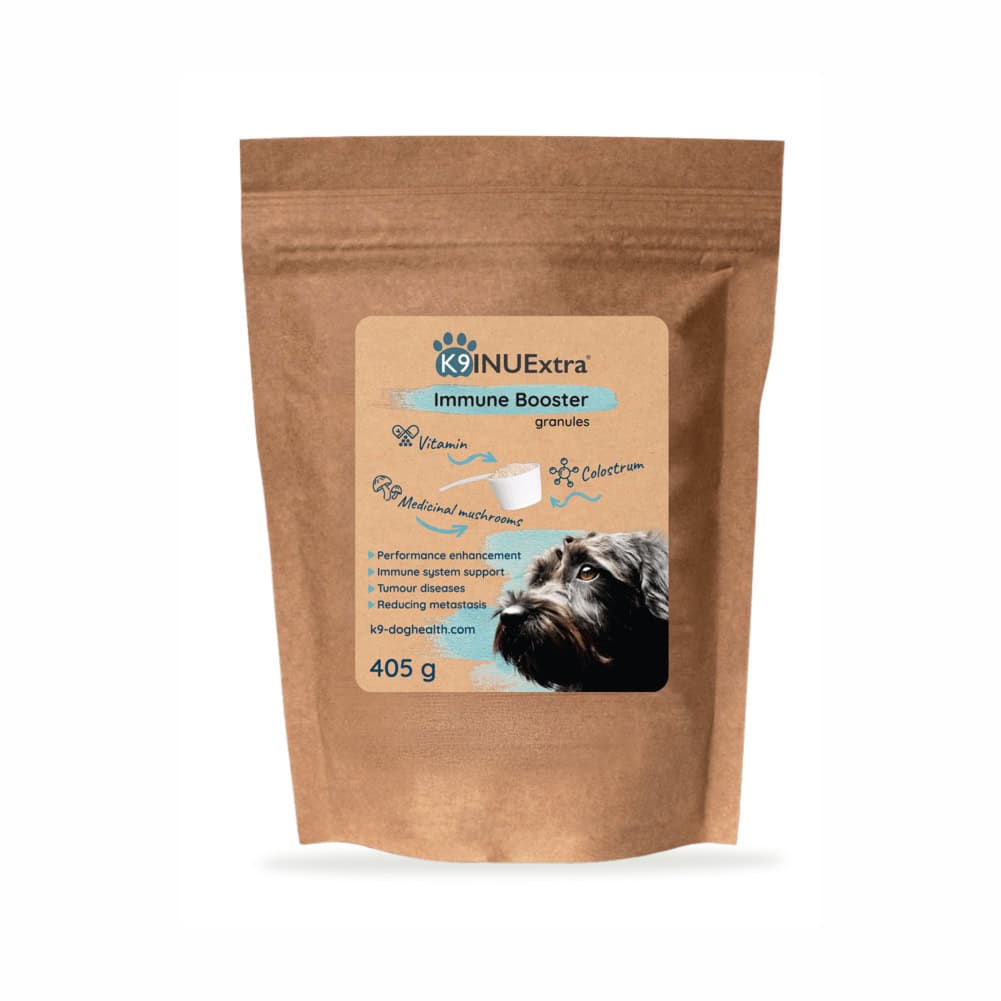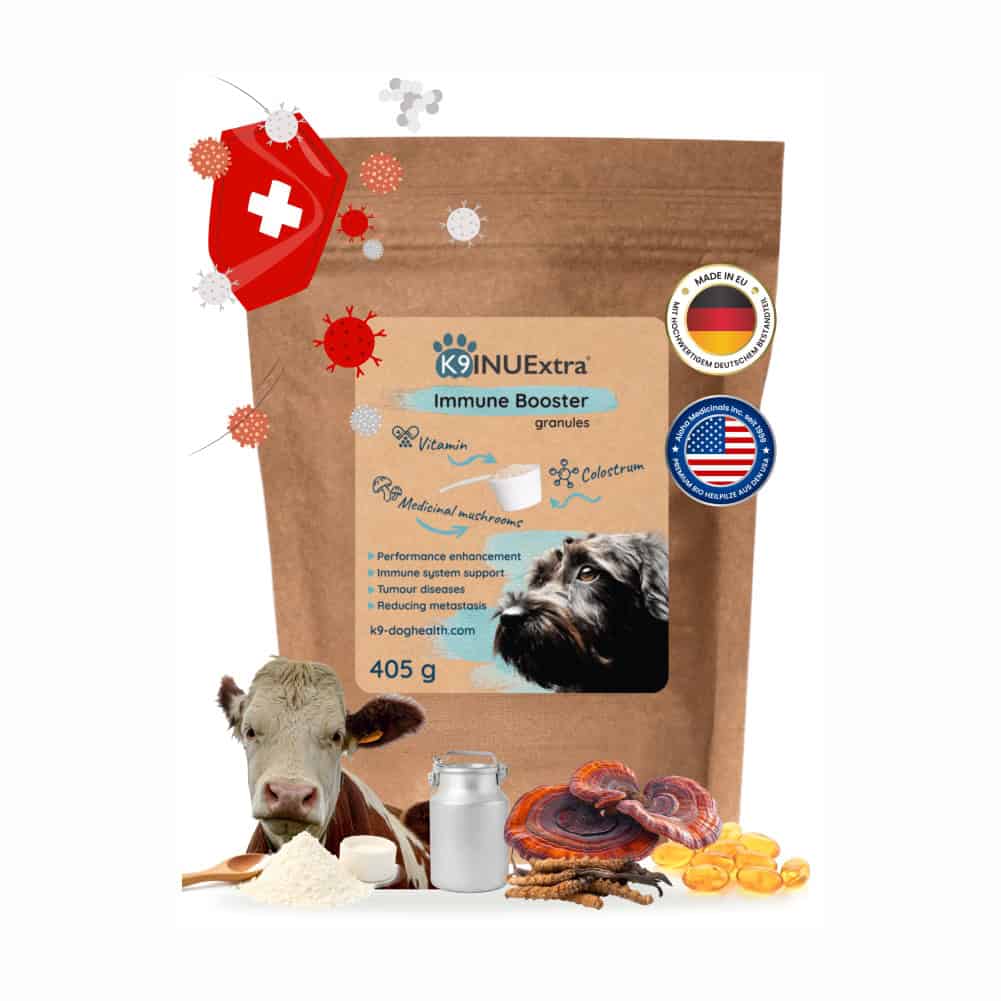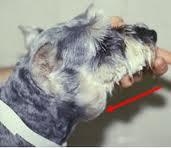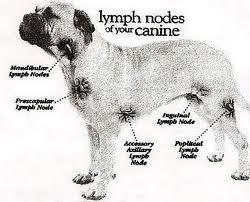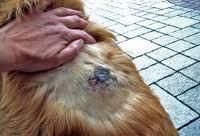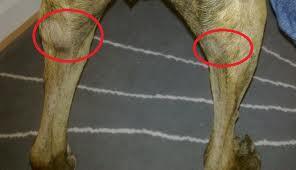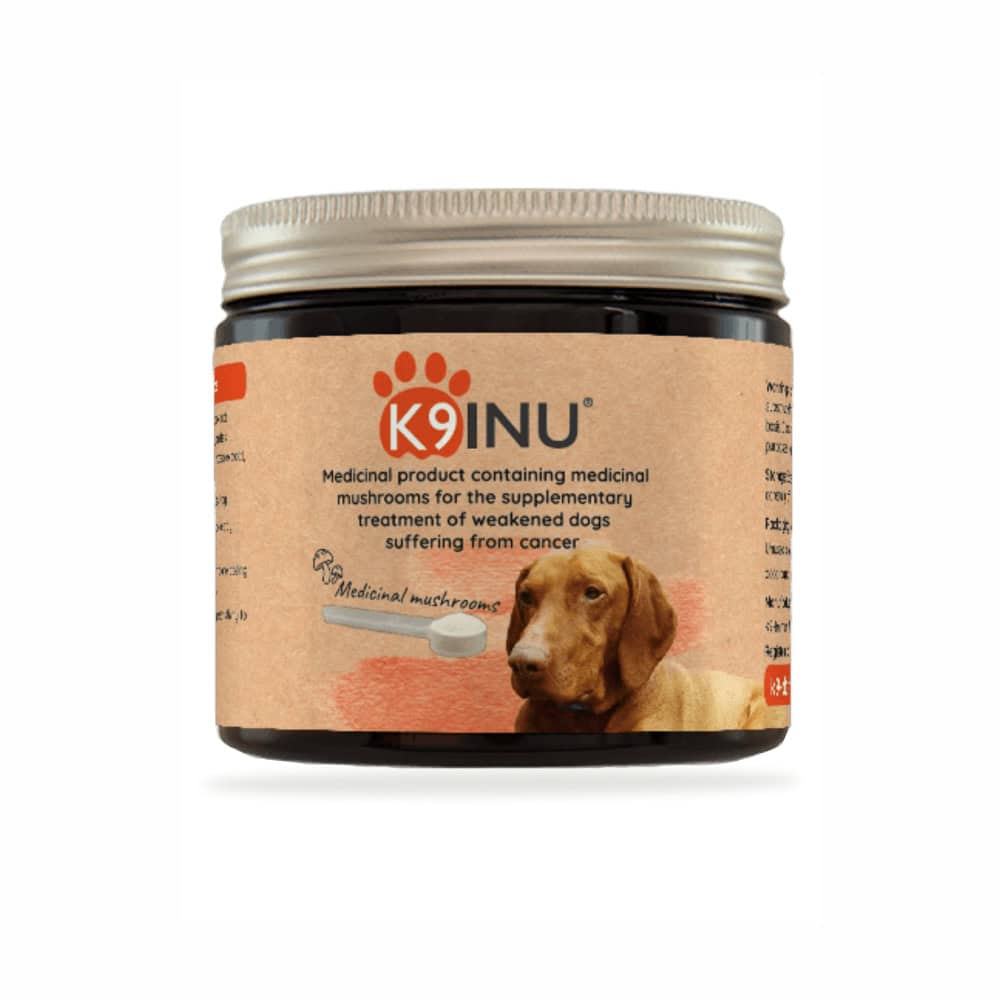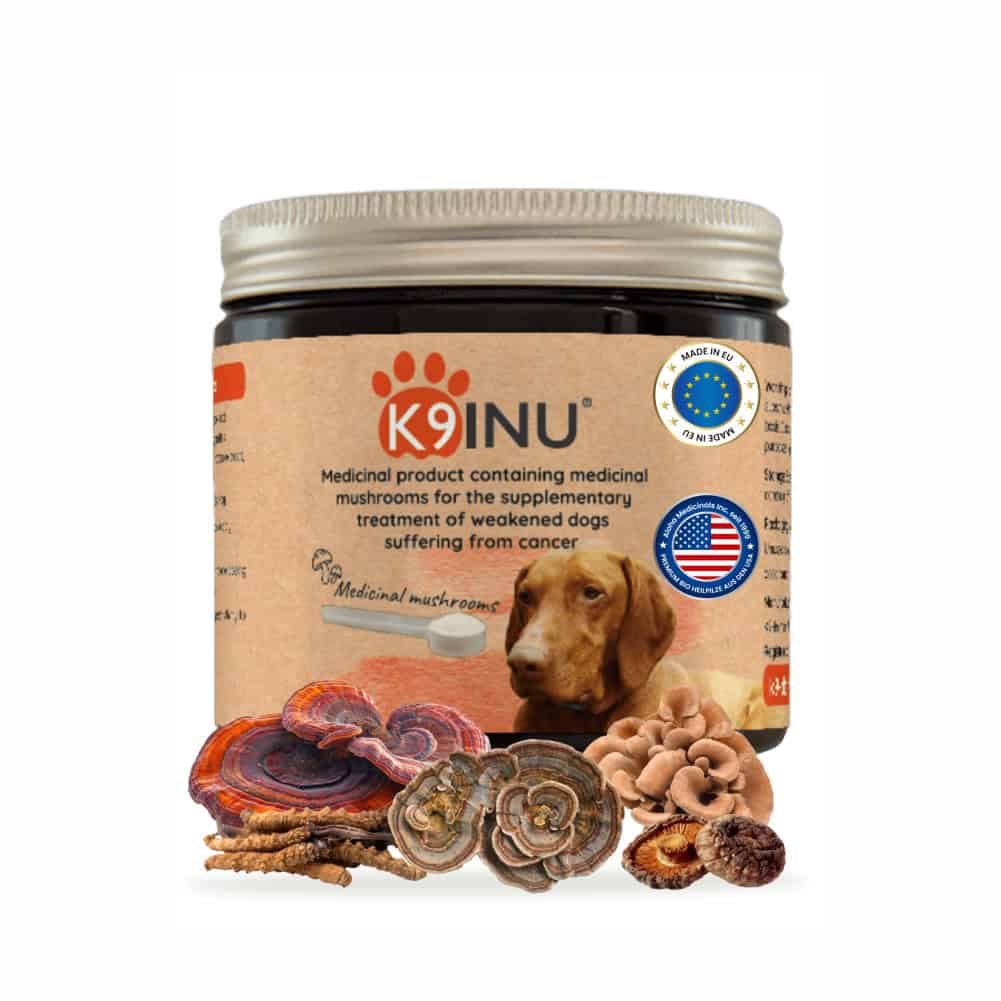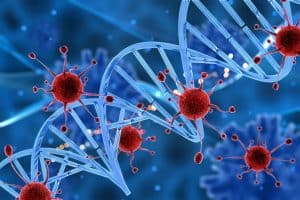Lymphoma is a fairly common type of tumor in dogs, but it is mostly treatable. Most types of dog lymphoma respond well to a combination of conventional treatment – such as chemotherapy – and some type of immunomodulatory (immune-boosting) therapy, such as K9 INU®.
In the case of otherwise healthy dogs, lymphoma has the highest chance of recovery from cancer. 50% of dogs with lymphoma can be cured.
What is lymphoma (lymph node cancer)
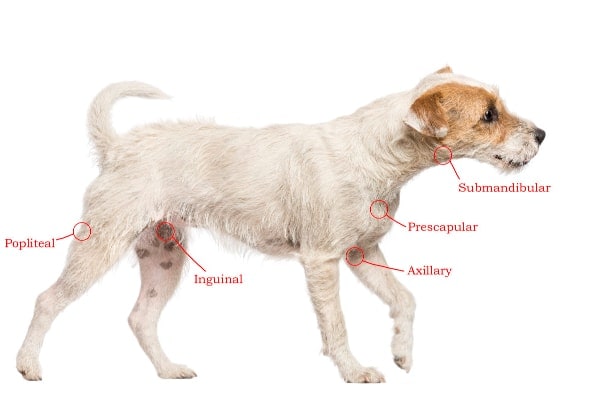
source: vet.purdue.edu
The lymphatic system is the ‘other’ circulatory system of the body. The lymphatic system consists of vessels, channels, lymph nodes, and organs spread throughout the body. Its main function is to circulate lymph, which contains lymphocytes. These white blood cells destroy invading microorganisms and foreign bodies.
Organs of the lymphatic system filter out invaders from the lymph and prevent them from spreading. The lymphatic system, or lymphocytes, is actually the body’s primary defence against infection.
In healthy dogs, these cells (lymphocytes) are formed in the bone marrow, go through a life cycle of approximately 30 days, then die and are either absorbed or eliminated with the waste products.
In lymphoma, the lymphocytes start to behave like cancer cells, not dying sufficiently or growing and dividing uncontrollably.
Abnormal lymphocytes gather in the lymph nodes, causing swelling. Since lymphocytes exist throughout the body, lymphoma can also develop in other areas. Common sites include the spleen and bone marrow, but lymphoma can also occur in the stomach, liver, or rarely, the brain. The disease often affects multiple parts of the body simultaneously.
Symptoms of dog lymphoma (lymph node tumour)
The symptoms of lymphoma are related to the location of the tumor(s) within the body. Lymphoma is generally characterized by a high white blood cell count, swollen lymph nodes, and depression. Depending on the tumor’s location, symptoms may include loss of appetite, vomiting, diarrhea, weight loss, or shortness of breath. Additional signs can be muffled heart sounds, itchy red bumps, boils on the skin, or in the mouth.
Lymphoma is a serious and unfortunately quite common disease in dogs. Some breeds are more prone to it than others. The golden retriever, for example, is particularly prone to this type of dog cancer.
Cancer is usually an immune system dysfunction!
Dog lymphoma and immunomodulatory therapy
Lymphosarcoma (lymphoma) develops when the immune system fails to identify the altered lymphocytes as invaders and allows them to multiply uncontrollably.
Traditional Asian medicine, and more recently modern medicine, use natural compounds in cancer treatment. Their task is to correct improper immune system functioning.
The immunomodulating ingredients stimulate the immune system to recognize the degenerated cells and give an appropriate immune response. As a result of the recognition, the body “relearns” how to respond to abnormally developing cells, destroys them and leaves healthy scar tissue in their place.
Immunomodulatory agents are not the same as conventional anti-tumour drugs such as chemotherapy!
Chemotherapeutic agents
are toxic and their job is to destroy cancer cells. They are very useful in the fight against cancer because they significantly reduce the number of degenerated cells in the body, but they do not address the root cause of why the body has allowed them to proliferate.
In contrast, immunomodulatory agents
are non-toxic, their main active ingredients being naturally occurring compounds (in our food) called heteropolysaccharides, which are needed by all mammals for proper immune function.
Treatment options for lymphoma in dogs
Chemotherapy for dog lymphoma
The treatment of lymphoma in dogs is chemotherapy. As this type of tumour is most likely to attack otherwise healthy young and middle-aged dogs, they are usually better able to tolerate aggressive chemotherapy. Of course, several factors largely determine the outcome of the treatment, including the size of the tumor area, the extent of any metastasis, and the major organs involved. Surgeons usually remove the affected lymph node, although the effectiveness of this procedure alone remains debatable. After surgery, they typically administer some form of chemotherapy to target any remaining tumor cells. Surgery and chemotherapy are effective in removing most of the tumour, but this is only half of the healing process. These interventions do not cure the cancer, they do not correct the immune system dysfunction that allowed the tumour cells to develop.
When surgery and chemotherapy remove most of the tumour cells causing damage, the dog’s condition improves significantly. Adding immunomodulatory therapy (K9 INU® and K9 INUFactor®) activates the immune system. This combination greatly increases the chances of beating lymphoma and living a normal life.
Immunomodulatory therapy
Strengthening the immune system is essential in cancer (Dog Lymphoma, Osteosarcoma, Mastocytoma, Hemangiosarcoma, Mammary tumor, etc.) or any other disease resulting from an immune disorder! Until the body reacts to the disease on its own, there is no real cure, only symptomatic treatment.
Therefore, many veterinarians say, rightly so, that the dog’s life can only be extended, but the tumor is still there.
This type of cancer (lymph node tumour) responds very well to the combination of chemotherapy and immunomodulatory therapy!
How well a dog responds to immunomodulatory therapy is difficult to generalise. The success of the treatment depends on a number of factors, such as the age of the dog, diet, medical history, location and extent of the tumour and which organs are affected.
In general, the earlier a diagnosis is made, the better the chances. Lymphoma usually occurs in younger dogs. If detected in time, immunomodulating agents, in addition to conventional treatments, provide the best chance for recovery and prevention of recurrence.
The role of diet in dog cancer
Cancer is one of the most common causes of death in dogs. Many experts believe that the main reason for this is an improper diet. We usually feed our pets foods based on cereals, even though dogs do not naturally graze on wheat fields. Dogs do not have the enzymes to digest and utilise grain. They are basically carnivores!
When a carnivorous animal eats a grain-based diet, its body does not get (or cannot process and utilise) the nutrients it needs, there is a high risk of immune disorders, including cancer.
If inappropriate diet is indeed one of the main causes of cancer, then it is clear that a good diet is essential for dogs with cancer. In fact, proper diet is one of the most important factors in successful cancer treatment! To really give our dogs everything they need to fight cancer, we need to provide them with the right nutrients. Just because a dog food is expensive, highly recommended or has a trendy name, doesn’t mean it’s the best for a dog with cancer. For more information, read our article FEEDING A DOG WITH CANCER.
Worried about your dog’s health?
Learn more about our natural immune-boosting supplements to support your dog’s recovery from lymphoma.
Click here if you want to read more about the symptoms of dog cancer or the connection between cancer and medicinal mushrooms.
Vagy kattints ide, ha a kutyadaganat tüneteiről, illetve a daganat és a gyógygombák összefüggéséről magyarul szeretnél olvasni.
